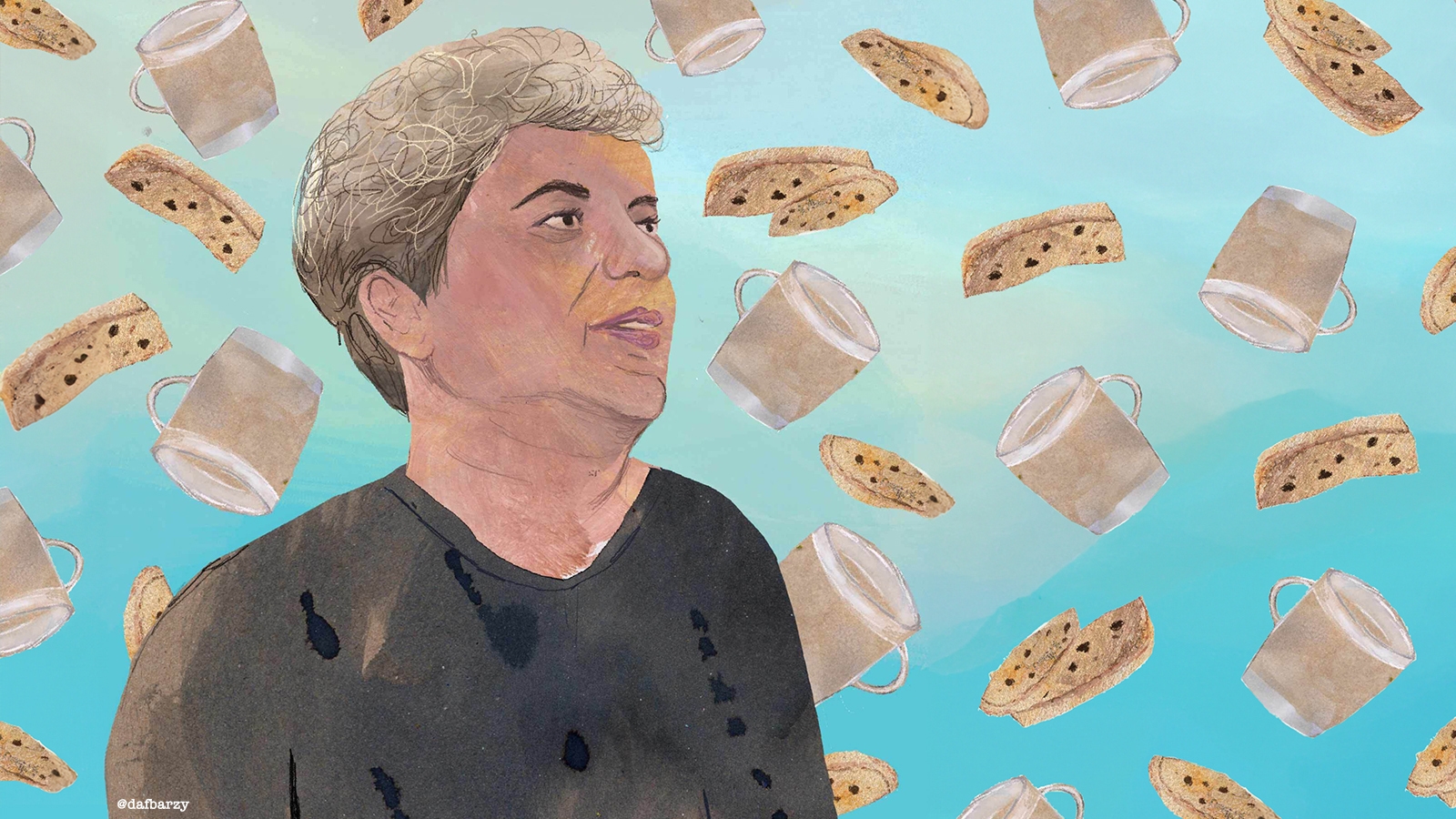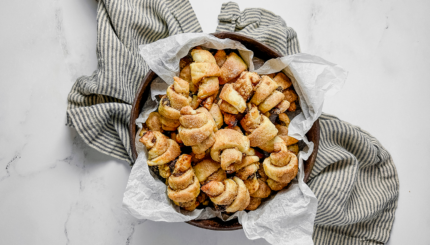On Saturday morning, October 7, 2023, Hamas terrorists from the Gaza Strip invaded Israel, some of them making their way to the southern town of Ofakim. There, five terrorists entered the home of David and Rachel, holding the couple hostage for 15 hours. How they survived is a story of bravery, strategy — and coffee and cookies.
The terrorists entered the couple’s home through a ground floor window. They were heavily armed, Rachel told Israel’s Channel 13, with a LAW anti-tank missile, guns and grenades. They repeatedly told the couple that they would kill them.
“I said to my husband, if we will die, we will die together,” Rachel told Israel’s Channel 12 News.
The situation was not looking good, particularly when Israeli security forces arrived, sparking an exchange of fire.
The Nosher celebrates the traditions and recipes that have brought Jews together for centuries. Donate today to keep The Nosher's stories and recipes accessible to all.
After being informed that Rachel and David were being held hostage inside their home, the Israeli special forces began to negotiate with the terrorists, aided by the couple’s police officer son Evyatar, who was outside the house.
Among various demands from the terrorists were medical equipment for one of them who’d been injured, food and water. When some demands, such as a cell phone, were denied, they became angry.
Any Jewish mother knows that an empty stomach can contribute to all manner of problems, including anger, so Rachel asked the terrorists if they were hungry. Presumably the answer was “yes,” as she ended up serving them coffee and cookies.
Exactly what kind of coffee and cookies Rachel gave her captors has yet to be revealed. Israel has a strong coffee culture, ranging from very strong, black Turkish coffee introduced in the Ottoman era (aka Arabic coffee or botz, Hebrew for “mud,” which refers to the grainy sludge that remains in the bottom of the glass) to “hafuch,” somewhere between a cappuccino and a latte. As Rachel was serving under immense pressure, it’s likely that it was instant coffee, known in Israel as “nes” (which means “miracle” but is actually a shortened version of “Nescafe,” one of the original instant coffee brands).
As for cookies, the possibilities are endless: from the plethora of cookies found in any Israeli bakery to an array of grocery store delights, including an enviable selection of wafers.
But Rachel didn’t just feed her captors; she hosted them, in an incredible display of bravery and balaboosta-ship. She offered them lunch, telling Channel 13 that she chatted with them to distract them and bandaged one of their hands that was injured. In turn, they sang to her: songs by Israeli Mizrahi singer Lior Narkis.
Like all the events of October 7, the couple’s story reads as a surreal nightmare. Unlike many others, their story, thankfully, has a happy ending. At 2:30 a.m. they were rescued by security forces, and reunited with their son.
“We were very close to the terrorists, but we were saved. I thank God that I am alive, I couldn’t believe it,” Rachel told Channel 12.
Rachel’s story has touched the hearts of many Israelis, who are desperately clinging to good news in these dark times. Her unlikely hospitality has also provided some comedic relief, with various memes and jokes about the quality of “Rachel’s cafe” and coffee and cookies circulating on Israeli social media and WhatsApp groups. This good-natured teasing is testament to the tenderness that Israel feels for their new hero, Rachel, and everything she represents: survival, kindness, foresight and hope.



